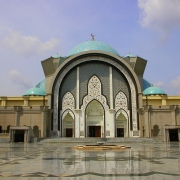“We are Not Our Brain: How Poets and Philosophers Saw the Immaterial Life of the Self.” Renovatio, Spring (2024) – Muhammad U Faruque
Abstract:
We live in an era in which the brain has come to signify the central component of human identity. It’s common to hear people blurt out statements like “our brains are wired to do XYZ,” or “the brain creates new ideas,” or “explain X to my brain” (instead of saying “explain X to me!”) to talk about their feelings, desires, experiences, and understanding. For a dyed-in-the-wool materialist who either believes there is no mind or soul or completely identifies the mind with the brain, it makes sense to replace the words “I” or “mind” with “brain.” While materialism arguably is not the dominant viewpoint in our culture, this nod to the brain puzzlingly persists when we should really be referring to the entire person/self of which the brain is a part. We unwittingly take the brain to be the center of our self, which has implications for the contours of human subjectivity, the source of our meaning, wonder, love, and beauty. Do such materialistic habits of describing ourselves render holistic conceptions of the human self involving body, soul, and spirit completely void?









